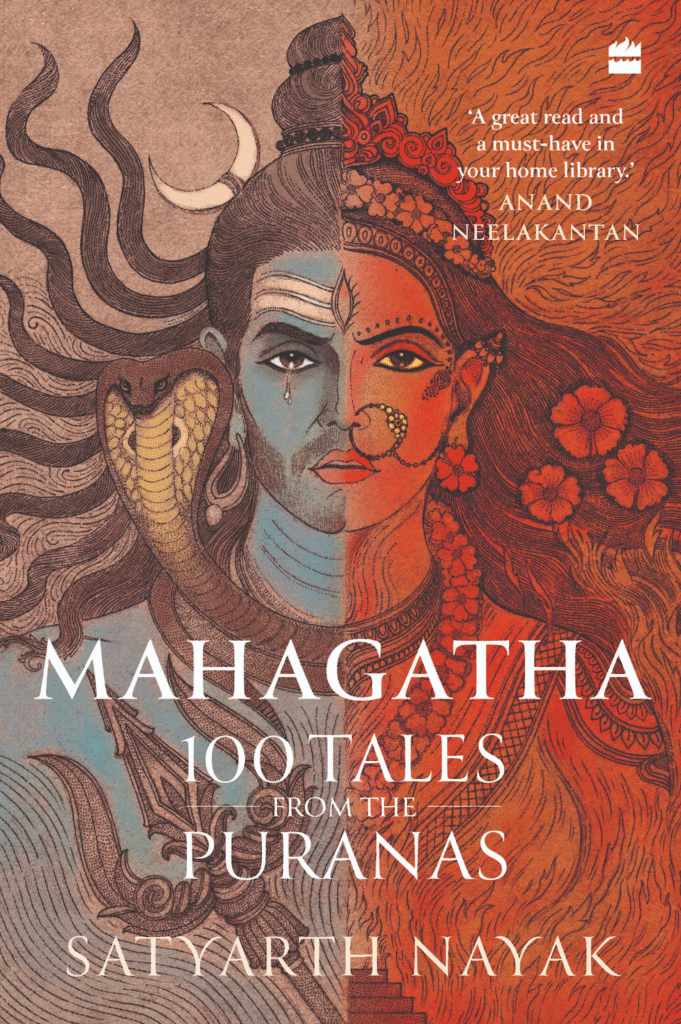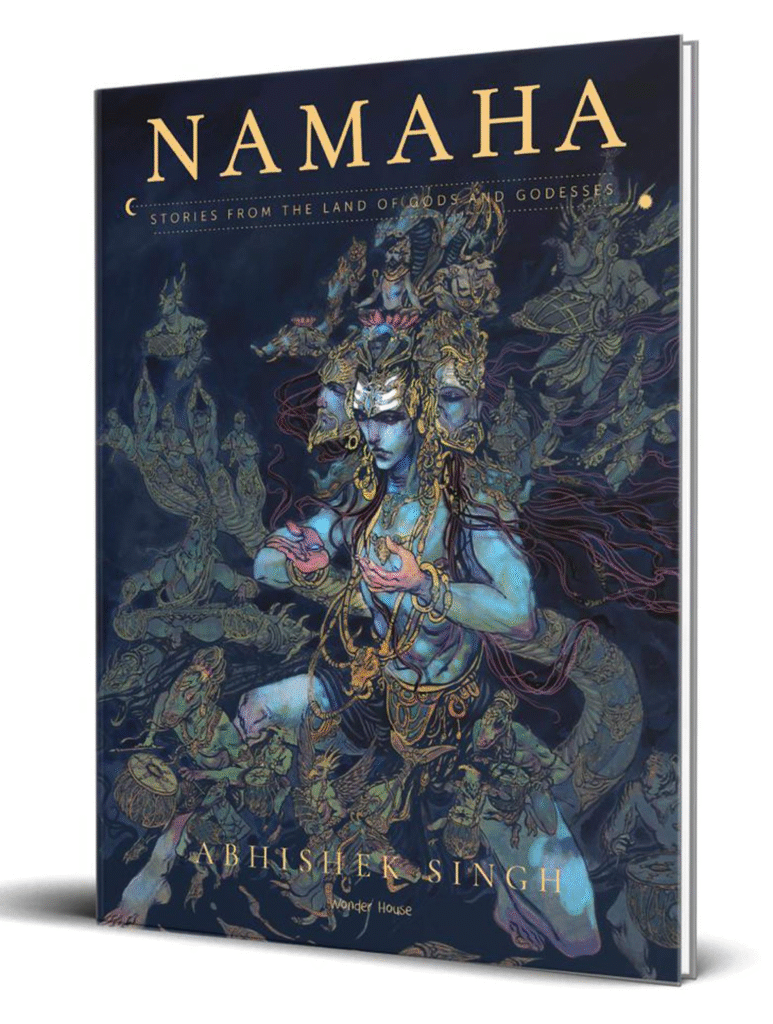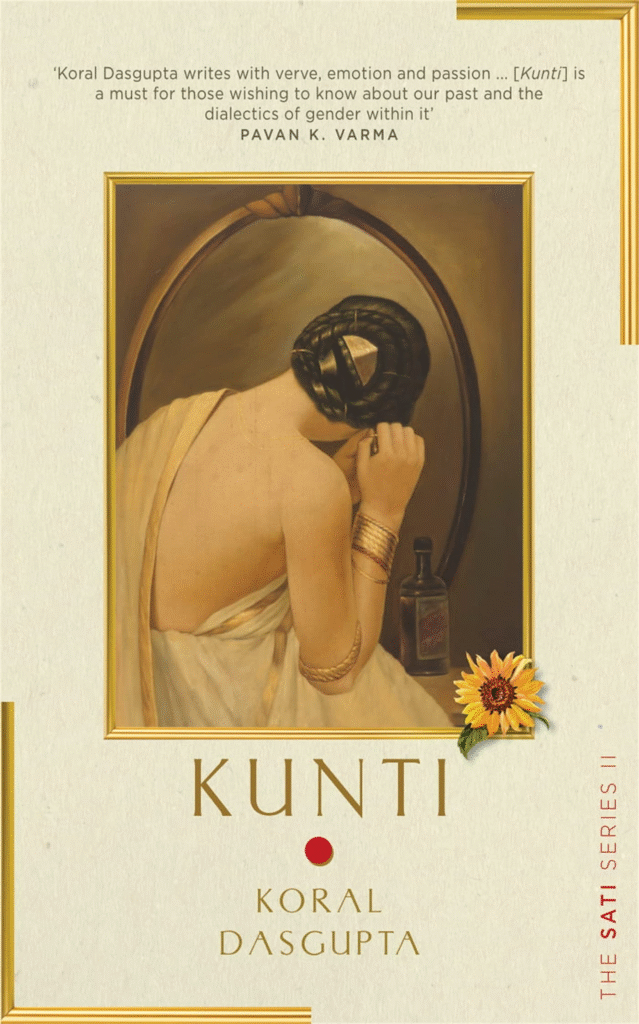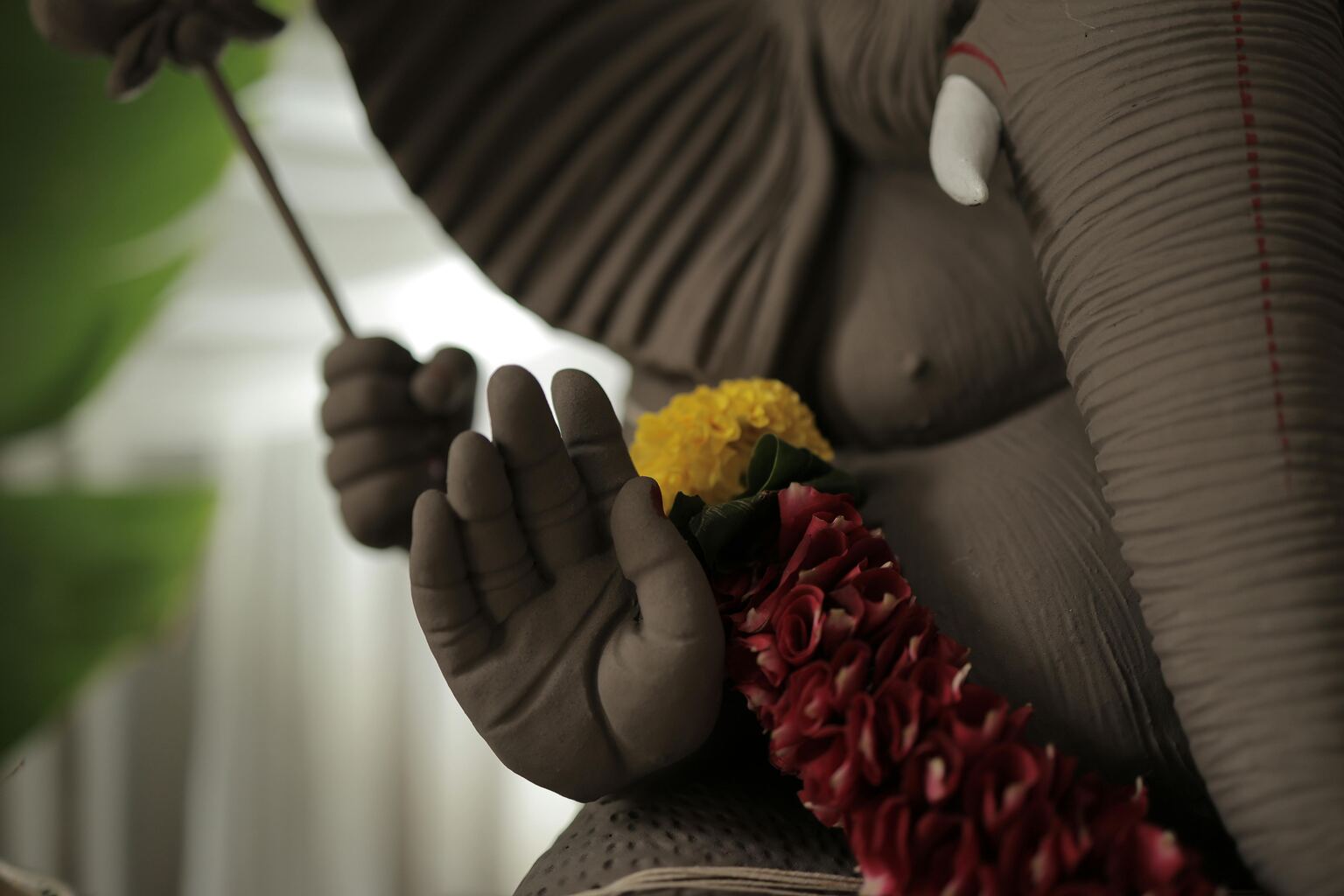Haven’t we all grown up listening to stories? Be it Devas, Asuras, or Yakshas, they stand on par with their abilities and weapons. Magical animals and vahanas are no less dazzling. Consider this: Bedtime stories were gleaned from Hindu mythology books. You and your cousins are gathered around Grandma because she’s taking you on yet another adventure. It didn’t necessarily have to be ghosts and ghouls, but there were always just enough Gods to save the day. Or of angry Goddesses seeking vengeance. Either way, there was curiosity, and enough faith to go around.
Growing up with Chandamama’s Vikram-Vetal leaves you feeling nostalgic. Of listening to stories where the world rests on a turtle’s back, and of Ekalavya’s frustrating destiny. Amar Chitra Kathas piled up on spare surfaces. While we’re there, or trying to bring back some of that old magic, here’s a list of 11 must-read Indian mythology books embracing the rich cultural heritage:
1. Valmiki’s Ramayana and Vyasa’s Mahabharata

Some stories reckon the beginning of the descent into reading. Others come under stories which are beginnings themselves. Ramayana and Mahabharata are considered age-old epics that are passed down to every generation as though coveted heirlooms. While obtaining a true source is increasingly difficult, the values they seek to part with remain at the core of every passing edition.
Breaking down an epic is a monstrous task, and yet the following authors have contributed significantly:
- C. Rajagopalachari’s retellings of the Ramayana and the Mahabharata
- M.N. Dutt’s Mahabharata of Vyasa
- Devdutt Pattanaik’s illustrated mythological retellings of the Ramayana and the Mahabharata have been published as Sita and Jaya respectively
- Ami Ganatra’s Ramayana Unravelled
- Parva by S.L Bhyrappa (a de-mythologized re-telling of the Mahabharata)
- Ramayana Series by Ashok K. Banker (a fictional re-telling of the Ramayana)
- Sons Of Darkness by Gourav Mohanty (a dark fantasy re-telling based off Mahabharata)
- Rana-kshetram series by Utkarsh Srivastava (a fictional re-telling based off Mahabharata, in Hindi)
- The Ram Chandra Series by Amish Tripathi (a fictional re-telling of the Ramayana)
2. The Bhagavad Gita by Maharishi Ved Vyasa

Understood as the philosophical dialogue between God, Shri Krishna, and hero, Arjuna, The Bhagavad Gita was written to illuminate divinity. Krishna, posing as the charioteer of Arjuna at the Kurukshetra battle, engages in this dialogue: focused on duty (dharma), selfless action, devotion, and detachment from outcomes.
The ancient treatise itself is full of meaning on its own, let alone giving readers ample room to read between the lines. Devdutt Pattanaik’s demystification of the text, in verse-by-verse format, makes even the most difficult exchange of words accessible. The text is indulgent as it is instructing: its relevance today makes it still worthy to examine.
3. Myth = Mithya: Decoding Hindu Mythology by Devdutt Pattanaik

Hindu mythology is inherently symbolic, yet surprisingly a lot of it is overlooked. In such symbolic presentations of thoughts served as truths, references have been made from the Vedas and the Puranas. Decanted into three parts – Brahma/Saraswati, Vishnu/Lakshmi, and Shiva/Shakti – the book’s simple prose offers a lot of insight. It also accommodates other stories that thread Hinduism to mythology.
RELATED READING: 11 Best Norse Mythology Books
4. Mahagatha: 100 Tales From The Puranas by Satyarth Nayak

The reason we believe in karmic cycles must exist among lessons of cause and effect. This book remains a testament to that. Handpicked stories, following chronology from Creation in Satya Yug to the (supposed) end in Kali Yug, have been compiled into this epic illustrated edition.
Apart from well-known legends of devas, asuras, kings, and sages, it also offers lesser-known stories that all tie each other into one big universal timeline. It goes beyond the usual storytelling experience by allowing readers to delve into the minds of the characters to truly understand their motivations.
5. Namaha: Stories From The Land Of Gods And Goddesses by Abishek Singh

Namaha stands in place of a mantra, meaning “not mine,” honoring something bigger than the self. It is commonly understood to be “I bow to you” in loose translation. This book dives into the fantastical worlds offered by stories of Gods and Goddesses in ancient Indian mythology.
Prompting itself in the short-story format, it combines unique aspects of story-telling with compelling illustrations. Apart from its straight-forward deciphering of symbolism, it also attempts to decode humanistic and ecological layers of such stories.
6. The Man From The Egg: Unusual Tales About The Trinity by Sudha Murty

In Hindu mythology, it is said that the weight of the universe rests on the shoulders of the Trinity. The revered trinity: Brahma, Vishnu, and Shiva, are responsible for the existence of humanity and its survival. We were taught that they each had a role to play.
Brahma is the Creator, Vishnu is the Protector, and Shiva is the Destroyer. Even as popular deities, there still remain a few tales untold. Sudha Murty’s The Man From The Egg sheds light on the enchanting tales of the most powerful gods from the ancient world.
7. The Difficulty Of Being Good: On The Subtle Art Of Dharma by Gurucharan Das

This book attempts to navigate the moral haziness that surrounds the ever-elusive question “why be good?” In turn, the Mahabharata holds up a mirror in this regard. Das has mastered the fine line between philosophical thought and general self-help.
The weight of an action is always understood in the contradiction it holds. Obsessed with the notion of “dharma” or “duty,” it encourages blatant application of text to real-life. Yet, confrontation of such truths surges beneath what “dharma” seeks to uphold. Only if we’re brave enough to sit through it.
8. The Palace of Illusions by Chitra Banerjee Divakaruni

Mahabharata is essentially a book on the events that led to the great Kurukshetra war, what transpired, and the aftermath. Amidst this wholly male narrative, the lens on the women involved is overlooked. Divakaruni has ambitiously flipped the lens on this half-historical, half-magical epic.
The Pandavas may have been legendary, but it is through Panchaali’s (/Draupadi’s) eyes that we revisit this battlefield. Journeying through all of her life, we see Panchaali in stark light. Some readers disagree with the Panchaali-Karna and Panchaali-Krishna subplots that have been included. Yet this woman-centric re-telling is a must-read, especially if you have a soft spot for simplified narratives.
9. Ajaya: Roll Of The Dice by Anand Neelakantan

Like a coin, every story has two sides. The defeated often don’t live to tell their tale. The narrator decides which parts to keep. Anand Neelakantan’s Ajaya follows the Kurukshetra war from the perspective of the Kauravas. Testing gray areas and morally gray characters is a big risk that people are skeptical about.
Often, villains end up being villainized because it makes the narrative easier to follow. Indian mythological fiction tends to fixate on confronting the ideals of inherent “good-ness.” When you lean into what is typically considered “bad,” you end up seeing just another side of humanity (faced with a different set of choices, perhaps). This is where Ajaya begins, with Duryodhana at the forefront.
The sequel, Rise Of Kali, attempts to question the lack of narratives surrounding the virtues of the vanquished.
RELATED READING: The Best 10 Viking History Books And More
10. Kunti: The Sati Series II by Koral Dasgupta

The second book in The Sati Series follows yet another revered “pancha kanya.” Koral Dasgupta focuses the lens on Kunti, a rare matriarch amongst the Mahabharata cast. Little is known of her, except mostly in relation to the male tale-bearers.
Seeking a good opportunity, the book follows the tender stories that led to Kunti’s positioning in the ultimate epic of the Mahabharata. It also appeals to the readers by providing modern consciousness amidst a feminist context. The Sati Series has gained popularity among mythology retelling books.
11. Markandeya Purana

Treading away from the usual texts in Indian mythology, we bring to you another facet from the intricate lore of the Hindu Puranas. Identified as a genre of Indian Literature, the Puranas are known for symbolism through stories. Originally composed in Sanskrit, a few of them have been translated into accessible texts. The Markandeya Purana is one among the 18 major Puranas, and is probably the oldest.
Titularly, it follows sage Markandeya in two legends linked to Shiva and Vishnu. Yet, the text itself remains vastly neutral: the sectarian presentation does not favor any God in particular. Rather, it operates as the oldest known treatise on Devi/Goddess as the Supreme Creator of the Universe. The text is also revered for the Devi Mahatmya, a central text in the Shaktism tradition (focusing on the feminine).
Printed editions include:
- The Calcutta edition, up to chapter 136
- The Bombay and Poona editions, with all 137 chapters
- English translation by C.C. Mukherjee, 1893
- English translation by F.E. Pargiter, 1904
- A translation of the Devi Mahatmya by Thomas Coburn, 1991
- The Critical Edition Of The Mārkaṇḍeyapurāṇam, edited by M.L. Wadekar, 2011
Other modern mythology books we’d recommend include:
- The Krishna Key by Ashwin Sanghi
- The Liberation Of Sita by Volga
- Kaikeyi by Vaishnavi Patel
- The Pandava Series by Roshani Chokshi
- The Pregnant King by Devdutt Pattanaik – ties settings from Ramayana and the Kurukshetra war
- The Shiva Trilogy by Amish Tripathi
- Lanka’s Princess by Kavita Kane
- Karna’s Wife: The Outcast’s Queen by Kavita Kane
Conclusion
Ancient stories have been both the boon and bane of existence for mankind. It is as though people have collectively agreed that the best way to pass down big life lessons is by steeping Indian culture and tradition in stories.
Based on the need for instruction and information, every one of these texts have been influential. They might have started out as mere stories, but we keep returning to them to learn. We wouldn’t have it any other way now.
10 Genuine Websites To Download Books for Free – Updated 2026




